The 39th Annual AAAI Conference on Artificial Intelligence
February 25 – March 4, 2025 | Philadelphia, Pennsylvania, USA

New Faculty Highlights
This year, AAAI is continuing its invited speaker program, highlighting AI researchers who have just begun careers as new faculty members or the equivalent in industry.
New Faculty Highlight talks will be allotted 30 minutes each; the aim for these talks is to broadly survey the candidate’s research to date. Several talks will be released online and publicized each day of the AAAI conference, following which they will be available archivally as part of the conference program. Invited speakers will be further invited to contribute an article to a corresponding series in AI Magazine.
Program Schedule
Program Overview
Representation-driven Option Discovery in Reinforcement Learning
Marlos C. Machado
The ability to reason at multiple levels of temporal abstraction is a fundamental aspect of intelligence. In reinforcement learning, this attribute is often modeled through temporally extended courses of actions called options. Despite the popularity of options as a research topic, they are seldom included as an explicit component in traditional solutions within the field. In this talk, I will try to provide an answer for why this is the case and emphasize the vital role options can play in continual learning. Rather than assuming a predetermined set of options, I will introduce a general framework for option discovery, which utilizes the agent’s representation to discover useful options. By leveraging these options to generate a rich stream of experience, the agent can improve its representations and learn more effectively. This representation-driven option discovery approach creates a virtuous cycle of refinement, continuously improving both the representation and options, and it is particularly effective for problems that require agents to exhibit different levels of abstractions to succeed.

Marlos C. Machado is an assistant professor at the University of Alberta. His research interests lie broadly in machine learning, specifically in (deep) reinforcement learning, representation learning, continual learning, and real-world applications of all the above. He is also an Alberta Machine Intelligence Institute (Amii) Fellow, a Canada CIFAR AI Chair through Amii, and a principal investigator in the Reinforcement Learning and Artificial Intelligence (RLAI) group. He completed his B.Sc. and M.Sc. at UFMG, Brazil, and his Ph.D. at the University of Alberta. During his Ph.D., among other things, he introduced stochasticity and game modes in the popular Arcade Learning Environment, and he popularized the idea of temporally-extended exploration through options, introducing the idea of eigenoptions. Before becoming a professor, he was a researcher at DeepMind and at Google Brain for four years; during which time he made several contributions to reinforcement learning, including the application of deep reinforcement learning to control Loon’s stratospheric balloons, published in Nature. His research has been featured in popular media such as BBC, Bloomberg TV, The Verge, and Wired.
Scalable Vision-Language Understanding and Generation
Linchao Zhu
Recent advances in vision-language models have shown remarkable potential, yet creating scalable systems that can effectively understand and generate across modalities remains challenging. This talk will present our contributions to advancing scalable vision-language systems, focusing on three key themes: (1) efficient vision-language understanding, including our work on temporal perceiving video-language pre-training and knowledge-enhanced zero-shot retrieval; (2) scalable generation frameworks, encompassing our innovations in zero-shot captioning and co-speech gesture generation; and (3) practical applications and deployments of these technologies. We will discuss how these advances have enabled both better performance and improved efficiency in real-world scenarios, and explore future directions for scalable multimodal systems.

Linchao Zhu is an Assistant Professor at the College of Computer Science and Technology, Zhejiang University. He was the recipient of the Google Research Scholar Award (2021). His main research interests include foundation models, AI simulation, and video modeling. He has won 8 international competitions and has served as an Area Chair for conferences including NeurIPS, CVPR, ECCV, and ICIP.
Bad AI, Good AI – Rethinking the Agency of Our Artificial Teammates
Reuth Mirsky
A prevalent assumption in human-robot and human-AI teaming is that the artificial teammate should be obedient and compliant. In this talk, I challenge the assumption that autonomous agents should always obey instructions and comply with our expectations. I argue that sometimes, to maximize their potential in the team, AI agents should employ intelligent disobedience. I will use guide dogs as inspiration to discuss several exciting manifestations of intelligent disobedience in AI and robotics: reasoning about other agents, initiating an interaction, teaching teammates, and more.

Reuth Mirsky is an Assistant Professor in the Computer Science department at Tufts University. Before her current position, she was a Senior Lecturer at Bar Ilan University and a postdoc at the Computer Science Department at the University of Texas at Austin. She received her Ph.D. on plan recognition in real-world environments from the Department of Software and Information Systems Engineering at Ben Gurion University. In her research, she seeks algorithms, behaviors, and frameworks that challenge current assumptions made for AI agents. Reuth is an active member of the AI and HRI research communities. Some of her recent roles are a program chair for the symposium on Technological Advances in Human-Robot Interactions (TAHRI), a guest editor in Frontiers of Artificial Intelligence in a special issue on Plan and Goal Recognition and in THRI in a special issue on AI-HRI, a senior program committee member for ECAI, and a reviewer for AIJ, JAIR, and RA-L. This year, she is nominated for the AAAI Executive Council.
Foundations of Multi-Agent Learning in Dynamic Environments: Where Reinforcement Learning Meets Strategic Decision-Making
Kaiqing Zhang
Recent years have witnessed tremendous successes of learning for sequential decision-making, and in particular, Reinforcement Learning (RL). Prominent application examples include playing Go and video games, robotics, autonomous driving, and recently large language models. Most such success stories naturally involve multiple agents. Hence, there has been surging research interest in advancing Multi-Agent Learning in Dynamic Environments, and particularly, multi-agent RL (MARL), to which my research has led and made significant contributions. In this talk, I will review my works on this topic, by discussing the near-optimal sample complexity of model-based multi-agent RL in two-player stochastic games, the fundamental computational hardness of RL in general-sum stochastic games, as well asl independent learning in stochastic games, which provides a more Economics perspective for MARL. Time permitting, I will also discuss our works on the applications on robot fleet learning, and recent results on multi-agent learning with large-language-model agents.
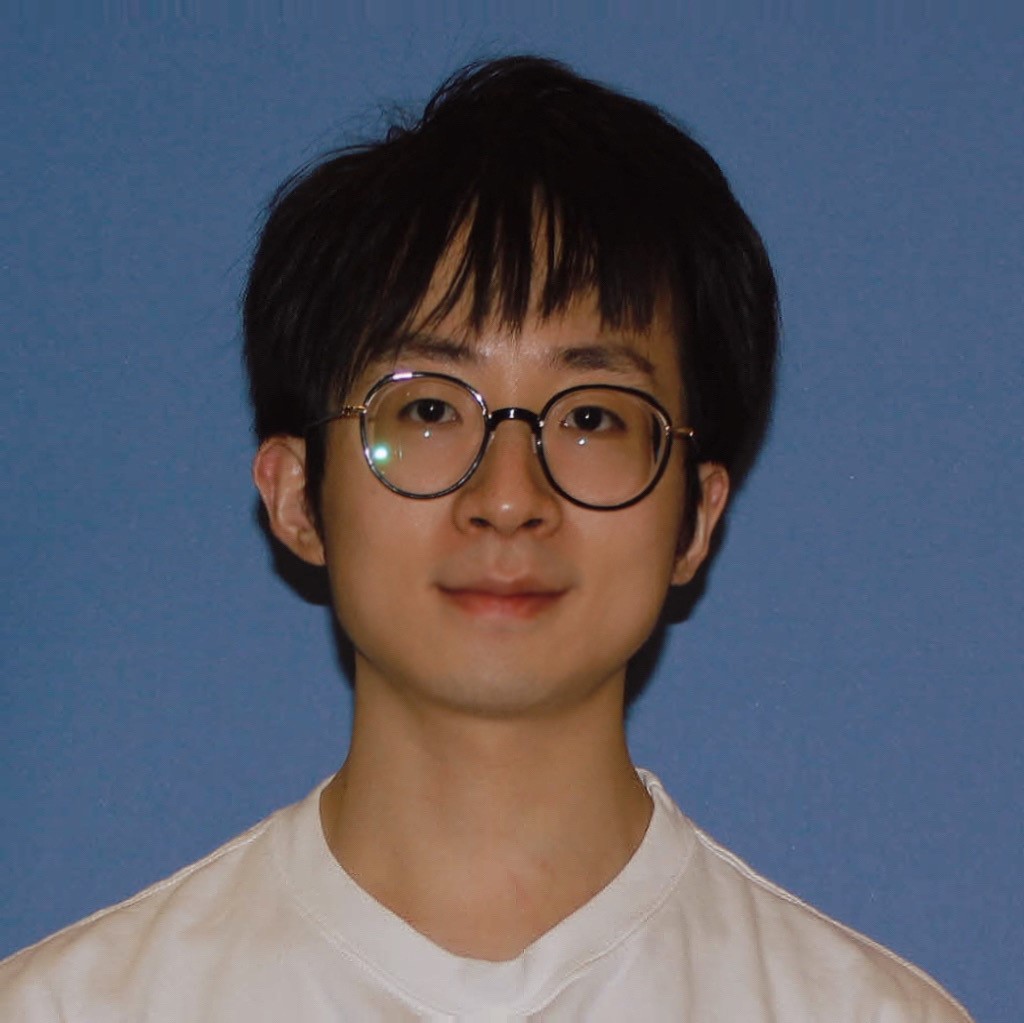
Kaiqing Zhang is currently an Assistant Professor at the Department of Electrical and Computer Engineering (ECE) and the Institute for Systems Research (ISR), at the University of Maryland, College Park. He is also a member of the Maryland Robotics Center, UMIACS, and Center for Machine Learning. During the deferral time before joining Maryland, he was a postdoctoral scholar affiliated with LIDS and CSAIL at MIT, and a Research Fellow at the Simons Institute for the Theory of Computing at Berkeley. He finished his Ph.D. from the Department of ECE and CSL at the University of Illinois at Urbana-Champaign (UIUC). He also received M.S. in both ECE and Applied Math from UIUC, and B.E. from Tsinghua University. His research interests lie broadly in Control and Decision Theory, Game Theory, Robotics, Reinforcement/Machine Learning, Computation, and their intersections. He is the recipient of several awards and fellowships, including Simons-Berkeley Research Fellowship, CSL Thesis Award, IEEE Robotics and Automation Society TC Best-Paper Award, ICML Outstanding Paper Award, and AAAI New Faculty Highlights.
Knowledge-driven Scientific Large Language Models
Qiang Zhang
Scientific research has been revolutionized by artificial intelligence, with numerous successes in biology and chemistry. In this talk, I will focus on the interdisciplinary field of AI driven biological and chemical discovery, aiming to establish language and knowledge driven machine learning models. By leveraging the capable language model and symbolic domain knowledge, our team has published a number of AI models that achieve promising results in tasks such as protein and molecular function prediction, and design/generation. The published models serve as a bridge between human and nature, helping humans better understand and explore the natural world.
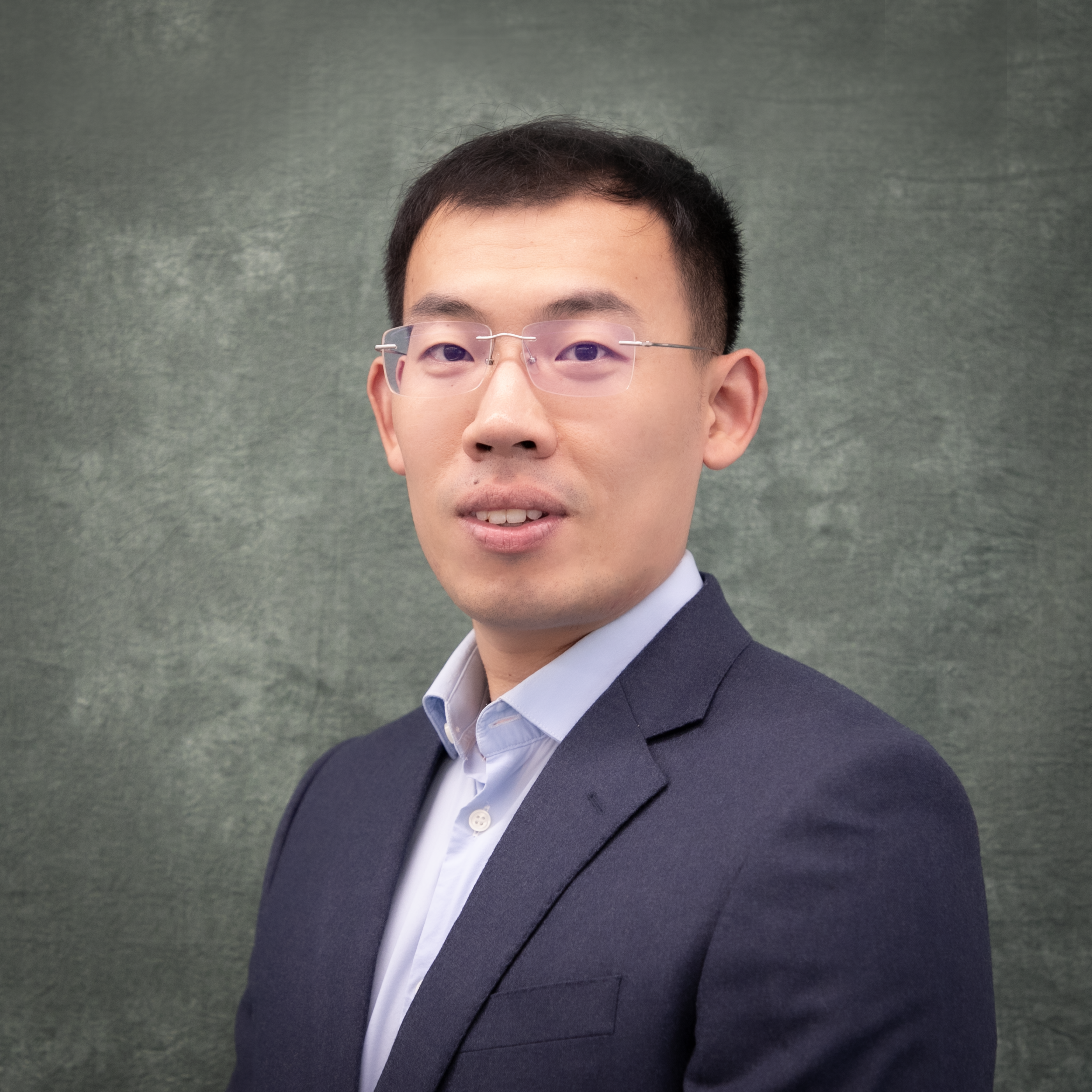
Dr. Qiang Zhang is a tenure-track assistant professor at Zhejiang University. He obtained his Ph.D. degree and served as a postdoctoral researcher, both at the Department of Computer Science, University College London in the United Kingdom. He was supervised by Prof. Emine Yilmaz, an internationally renowned expert in the field of information retrieval and natural language processing. Dr. Zhang’s research focuses on machine learning, natural language processing, knowledge graphs, and applications to biochemical language (proteins and molecules) modeling. He has published over fifty articles in top-tier AI academic journals and conferences including Nature Machine Intelligence, Nature Communications, NeurIPS, ICML, ICLR, AAAI and ACL.
Towards Robust, Efficient and Practical Decision Making: From Reward-Maximizing Deep Reinforcement Learning to Reward-Matching GFlowNets
Ling Pan
Recent years have witnessed the great success of reinforcement learning with deep feature representations in many challenging tasks, including LLMs, computer games, robotics, and so on. Yet, solely focusing on the optimal solution based on a reward proxy and learning the reward-maximizing policy is not enough. Diversity of the generated states is desirable in a wide range of important practical scenarios such as dialogue systems, drug discovery, recommender systems, etc. For example, in molecule generation, the reward function used in in-silico simulations can be uncertain and imperfect itself (compared to the more expensive in-vivo experiments). Therefore, it is not sufficient to only search for the solution that maximizes the return. Instead, it is desired that we sample many high-reward candidates, which can be achieved by sampling them proportionally to the reward of each terminal state. The Generative Flow Networks (GFlowNets) is a probabilistic generative model where an agent learns a stochastic policy for object generation, such that the probability of generating an object is proportional to a given reward function, i.e., by learning a reward-matching policy. Its effectiveness has been shown in discovering high-quality and diverse solutions in molecule generation, biological sequence design, alignment of foundation models, etc. The talk concerns my recent research works about how we tackle three important challenges in such decision-making systems. Firstly, how can we ensure a robust learning behavior and value estimation of the agent? Secondly, how can we improve its learning efficiency? Thirdly, how to successfully apply them in important practical applications such as computational sustainability problems and combinatorial optimization?

Ling Pan is a Tenure-Track Assistant Professor in the Department of Electronic and Computer Engineering and the Department of Computer Science and Engineering (by courtesy) at the Hong Kong University of Science and Technology (HKUST), leading the Agent Lab. Her research focuses on theoretical understanding, algorithmic improvements, and practical application of deep reinforcement learning, generative flow networks (GFlowNets), and multi-agent systems, aiming to develop robust, efficient, and practical intelligent decision-making algorithms. Her work has been published in premier AI and ML venues, with several papers selected for oral and spotlight presentations, and was recognized by the AAAI New Faculty Highlights program. Before joining HKUST, she was a postdoctoral fellow at Mila supervised by Prof. Yoshua Bengio (Turing Award Laureate) and obtained her Ph.D. at Tsinghua University, during which she visited Stanford University, University of Oxford, and Microsoft Research, and was awarded by the Microsoft Research PhD Fellowship (Asia).
Adaptive Experimental Design to Accelerate Scientific Discovery and Engineering Design
Aryan Deshwal
A huge range of scientific discovery and engineering design problems ranging from materials discovery and drug design to 3D printing and chip design can be formulated as the following general problem: adaptive optimization of complex design spaces guided by expensive experiments where expense is measured in terms of resources consumed by the experiments. For example, searching the space of materials for a desired property while minimizing the total resource-cost of physical lab experiments for their evaluation. The key challenge is how to select the sequence of experiments to uncover high-quality solutions for a given resource budget. In this talk, I will introduce novel adaptive experiment design algorithms to tackle this challenge. This includes both designing new predictive models over combinatorial objects (sequences, graphs, permutations, etc.) that work well in small data settings and provide principled uncertainty quantification and decision policies to carefully select each experiment for complex real-world settings where there are usually multiple objectives, multi-fidelity experiments, and black-box constraints. I will also present results on applying these algorithms to solve high-impact science and engineering applications in domains including nanoporous materials discovery, electronic design automation, and additive manufacturing. In the end, I will also cover some open challenges and future directions that I am excited about.
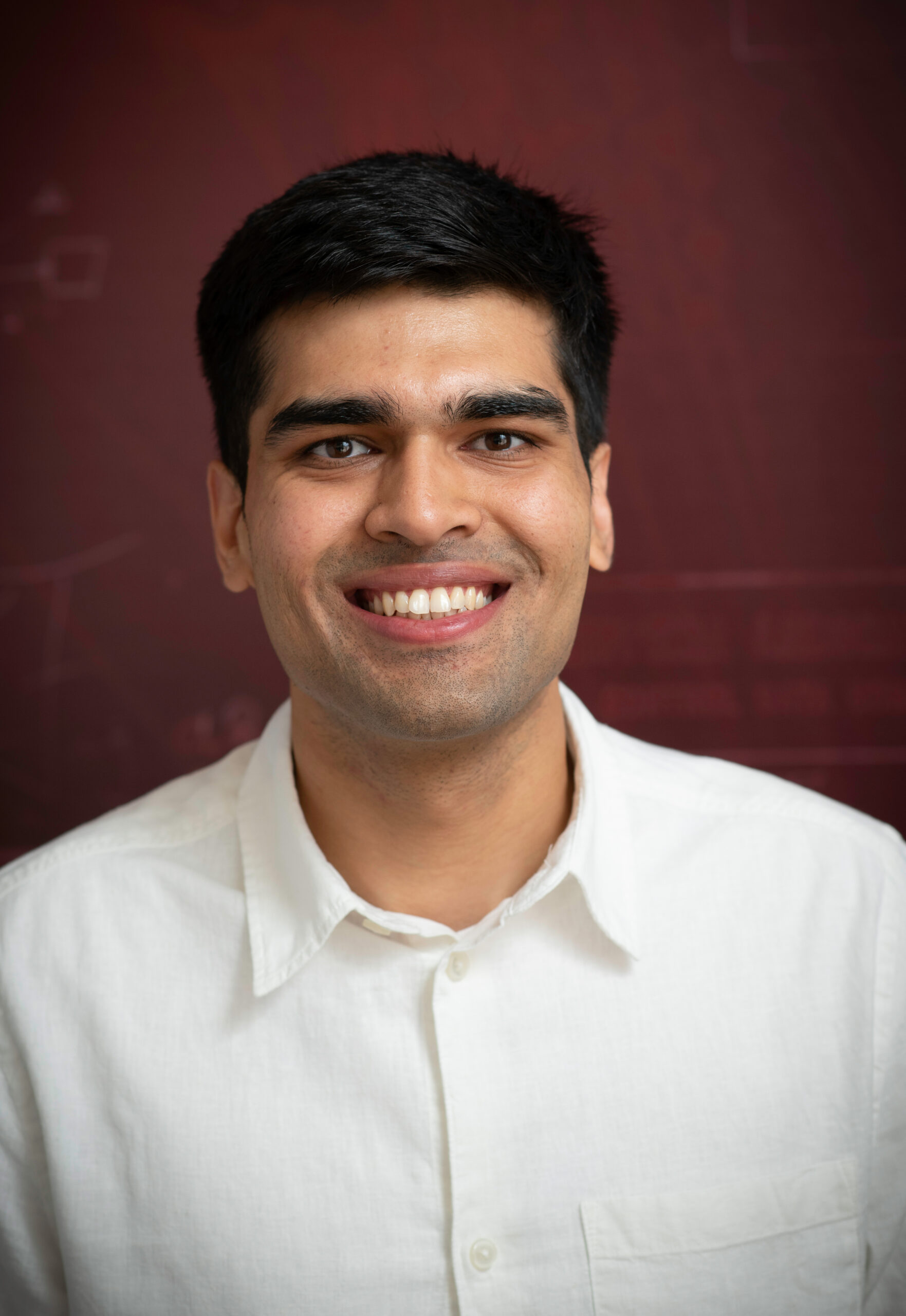
Aryan Deshwal is an Assistant Professor in the Department of Computer Science and Engineering (CS&E) at University of Minnesota. His research agenda is AI to Accelerate Scientific Discovery and Engineering Design where he focuses on advancing foundations of AI/ML to solve challenging real-world problems with high societal impact in collaboration with domain experts. He won the College of Engineering Outstanding Dissertation Award for his PhD at Washington State University. He was selected for Rising Stars in AI by KAUST AI Initiative (2023) and won multiple outstanding reviewer awards from machine learning (ICML (2020), ICLR (2021), and ICML (2021)) conferences.
Certified Trustworthiness in the Era of Large Language Models
Linyi Li
Along with the wide deployment of deep learning (DL) systems, their lack of trustworthiness, such as their lack of robustness, fairness, and numerical reliability, is raising serious social concerns, especially in safety-critical scenarios such as autonomous driving and aircraft navigation. Hence, a rigorous and accurate evaluation of the trustworthiness of DL systems is important and would be a prerequisite for improving DL trustworthiness. The first part of the talk will be an overview of certified methods for DL trustworthiness. These methods provide computable guarantees for DL systems in terms of worst-case trustworthiness under certain realistic conditions, such as the accuracy lower bound against arbitrary tiny perturbations. Based on our taxonomy and systematization, we reveal key methodologies and implications of certified DL trustworthiness. We will illustrate two concrete methods: semantic randomized smoothing and branch-and-bound with differentiable linear relaxations.
As a representative of recent DL breakthroughs, large language models (LLMs) are transforming our lives, but on the other hand, posing more challenges to trustworthiness. For example, LLMs can be jailbroken with adversarial prompts to output harmful content with bias, harassment, misinformation, and more. The second part of the talk will be an overview of LLM trustworthiness. We will start with sharing my hands-on experience in developing state-of-the-art LLMs in the industry, then illustrate common LLM trustworthiness issues via examples, and conclude by envisioning certifiable trustworthiness for LLMs.
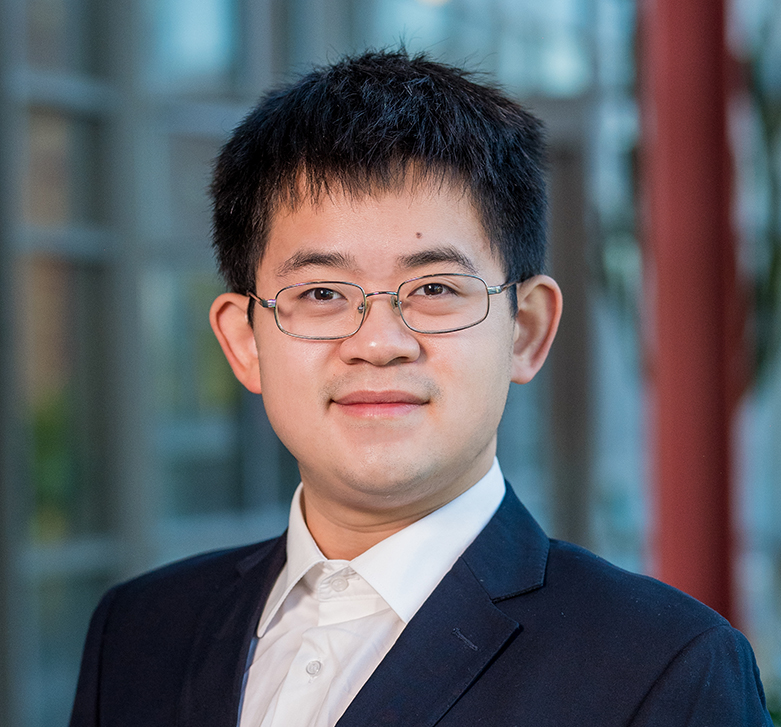
Linyi Li is an assistant professor in School of Computing Science, Simon Fraser University. His research is in trustworthy deep learning, with a focus on certifiably trustworthy deep learning and trustworthy foundation models. His research enables certifiable and verifiable trustworthiness guarantees (such as robustness, fairness, and numerical reliability) for large-scale deep learning systems; understands and analyzes mechanisms of deep learning and foundation models, especially their root causes of trustworthiness issues; and evaluates foundation models scientifically and comprehensively. He has published over 30 papers in flagship machine learning and computer security conferences such as ICML, NeurIPS, ICLR, IEEE S&P, and ACM CCS. He has been awarded Rising Stars in Data Science, the AdvML Rising Star Award, and the Wing Kai Cheng Fellowship. He co-led the Team alpha-beta-CROWN in 2023, which won the 4th International Verification of Neural Networks Competition. He was the finalist of the 2022 Qualcomm Innovation Fellowship and the 2022 Two Sigma PhD Fellowship. Linyi Li got his PhD in Computer Science from UIUC in 2023 advised by Bo Li and Tao Xie. He got his bachelor’s degree from the Department of Computer Science and Technology, Tsinghua University, in 2018.
Robots Learning Through Physical Interaction and Intelligence
Roberto Martin-Martin
Artificial Intelligence (AI) has advanced significantly in fields like computer vision (CV) and natural language processing (NLP), fueled by breakthroughs in machine learn-
ing. However, these strides have yet to fully extend to robotics, which faces unique challenges in long-horizon decision-making. Predicting and utilizing physical interactions to alter the environment remains complex for artificial agents. Consequently, robots minimize physical interaction to avoid risks in uncontrolled environments, relying heavily on computation for perception, planning, and control. In contrast, humans demonstrate that autonomy and intelligent behavior arise from exploiting rich interactions with the environment, reducing reliance on precise computation. My research aims to balance interaction and computation in robot learning systems that reason, perceive, and plan within the interaction loop, emphasizing physical interaction as essential in unstructured environments. To that end, my work spans three complementary research directions: imitation learning for Physical Interactive Intelligence, Physical Interactive Intelligence in navigation, and perceiving through Physical Interactions. I will also elaborate on my future steps towards “Ever Improving Physically Interacting Robots”.
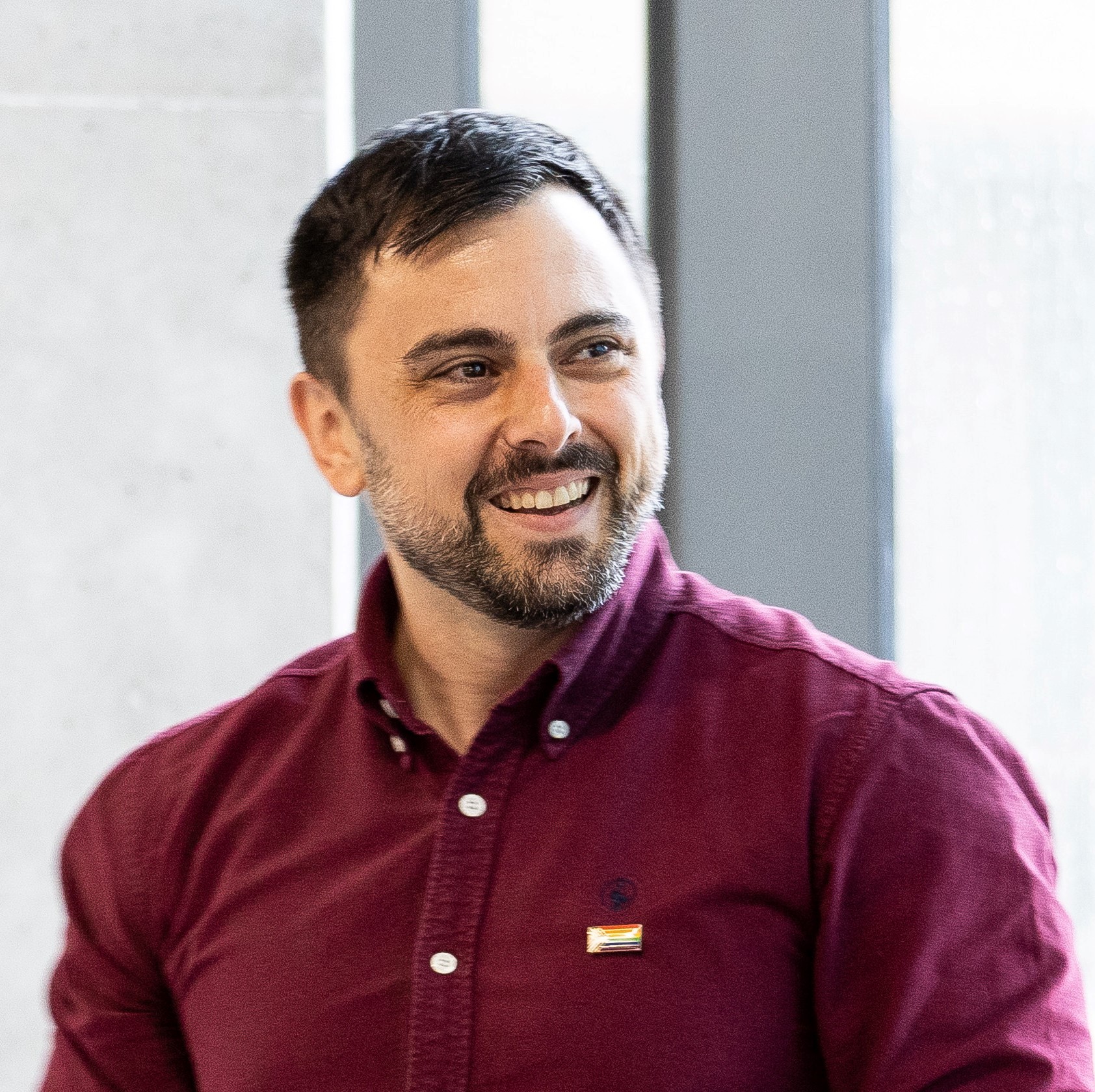
Roberto Martin-Martin is an Assistant Professor of Computer Science at the University of Texas at Austin. His research bridges robotics, computer vision, and machine learning, focusing on enabling robots to operate autonomously in human-centric, unstructured environments such as homes and offices. To achieve this, he develops advanced AI algorithms grounded in reinforcement learning, imitation learning, planning, and control. His work also addresses challenges in robot perception, including pose estimation, tracking, video prediction, and scene understanding. Martin-Martin earned his Ph.D. from the Berlin Institute of Technology (TUB) with Oliver Brock and later conducted postdoctoral research at the Stanford Vision and Learning Lab under the mentorship of Fei-Fei Li and Silvio Savarese. His contributions have been recognized with several prestigious awards, including the RSS Best Systems Paper Award, ICRA Best Paper Award, IROS Best Mechanism Award, RSS Pioneer designation, and he was part of the team that won the Amazon Picking Challenge. Beyond academia, he serves as chair of the IEEE Technical Committee on Mobile Manipulation and is a co-founder of QueerInRobotics, promoting diversity and inclusion in the field.
Multisensory Machine Intelligence
Ruohan Gao
The future of Artificial Intelligence demands a paradigm shift towards multisensory perception—to systems that can digest ongoing multisensory observations, that can discover structure in unlabeled raw sensory data, and that can intelligently fuse useful information from different sensory modalities for decision making. While we humans perceive the world by looking, listening, touching, smelling, and tasting, traditional form of machine intelligence mostly focuses on a single sensory modality, particularly vision. Therefore, my research, which I call multisensory machine intelligence, aims to empower machines to emulate and enhance human capabilities in seeing, hearing, and feeling, ultimately enabling them to comprehensively perceive, understand, and interact with the multisensory world. In my talk, I will present my research that studies two important aspects of the multisensory world: 1) multisensory objects, and 2) multisensory space. In both aspects, I will talk about how we design systems to reliably capture multisensory data from real-world objects and space, how we effectively model them with differentiable simulation algorithms that build a unified multisensory representation to virtualize real objects, and how we explore creative cross-modal/multi-modal applications with sight, sound, and touch in vision, graphics, and robotics. In the end, I will briefly conclude with my future plans.
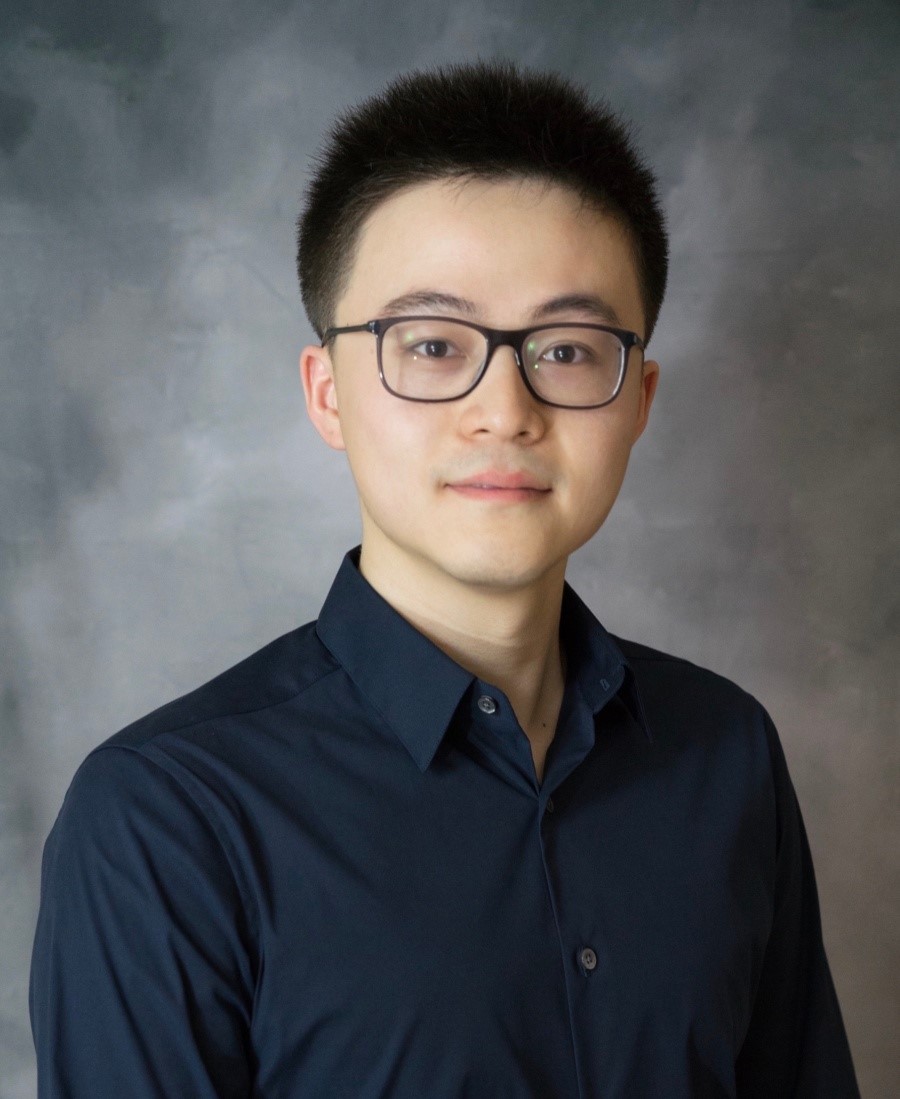
Ruohan Gao is an Assistant Professor of Computer Science at the University of Maryland, College Park, where he is leading the UMD Multisensory Machine Intelligence Group. Before joining UMD, he spent a year at Meta as a Research Scientist after his Postdoc at the Stanford Vision and Learning Lab. He received his Ph.D. degree in Computer Science from The University of Texas at Austin. He mainly works in the fields of computer vision and machine learning with a particular emphasis on multisensory machine intelligence involving sight, sound, and touch. His research has been recognized by the Stanford AI Lab Postdoctoral Fellowship, the Michael H. Granof Award which is designated for UT Austin’s Top 1 Doctoral Dissertation, the Google PhD Fellowship, the Adobe Research Fellowship, a Best Paper Award Runner Up at British Machine Vision Conference (BMVC) 2021, and a Best Paper Award Finalist at Conference on Computer Vision and Pattern Recognition (CVPR) 2019.
Efficient Robot Learning via Interaction with Humans
Erdem Bıyık
In many human-robot collaboration and multi-agent tasks, it is vital to model the partners and estimate their objectives to efficiently collaborate/interact with them. While learning from demonstrations is the most common approach for this, it is very data-hungry, which we cannot afford in many settings including robotics, and demonstrations are unreliable in a surprisingly large number of domains, including those we think humans perform reasonably well, e.g., driving. In this talk, I will start with introducing comparison-based feedback and explain why it does not suffer from most of the problems that demonstrations have, but is still data-hungry. To address this problem, I will propose comparative language based feedback and active learning techniques, which will result in (1) a new type of human feedback, and (2) an active querying algorithm that optimizes the information the AI agent will elicit from the human. I will conclude the talk by discussing what other types of human feedback exist, e.g., interventions or hand gestures, and how we can incorporate them into the existing learning algorithms.

Erdem Bıyık is an assistant professor in Thomas Lord Department of Computer Science at the University of Southern California, and in Ming Hsieh Department of Electrical and Computer Engineering by courtesy. He leads the Learning and Interactive Robot Autonomy Lab (Lira Lab). Prior to joining USC, he was a postdoctoral researcher at UC Berkeley’s Center for Human-Compatible Artificial Intelligence. He received his Ph.D. and M.Sc. degrees in Electrical Engineering from Stanford University, working at the Stanford Artificial Intelligence Lab (SAIL), and his B.Sc. degree in Electrical and Electronics Engineering from Bilkent University in Ankara, Türkiye. During his studies, he worked at the research departments of Google and Aselsan. Erdem was an HRI 2022 Pioneer and received an honorable mention award for his work at HRI 2020. His works were published at premier robotics and artificial intelligence journals and conferences, such as IJRR, THRI, CoRL, RSS, ICRA, NeurIPS, ICML and AAAI.
Scalable, Sustainable, Generalizable, and Responsible AI for Public Sector
Ryan Shi
AI for public sector research is about using AI to tackle the numerous challenges faced by public sector organizations when they are out there making our world a better place. AI for public sector research is use-inspired research. It differs from traditional AI research first and foremost in its key objective being measurable societal impact. AI for public sector research contributes to the computing community by proposing new problem models, raising complexities that challenge abstractions which often leads to new methodologies, and introducing new contexts for evaluation. However, fulfilling this promise is easier said than done. This talk consists of three parts about our preliminary work in our long-term quest to make AI for public sector operationally scalable, financially sustainable, technically generalizable, and socially responsible. We will cover (1) a concrete AI for public sector project from problem scoping to field trials and deployment, (2) a generalizable algorithm applicable to various public sector domains, and (3) an overview of our work in a wide variety of applications.

Ryan Shi is an Assistant Professor in the Department of Computer Science at the University of Pittsburgh. He works with public sector organizations to address societal challenges in food security, environmental conservation, and poverty alleviation using AI. Some of his research has been deployed at these organizations worldwide. He was the recipient of a 2024 Google Academic Research Award, the 2024 Newell Award for Research Excellence, a 2022 Siebel Scholar Award, and was selected as a 2022 Rising Star in Data Science and ML & AI by UChicago and USC. Previously, he consulted for DataKind and interned at Microsoft and Facebook. Ryan got his Ph.D. in Societal Computing from Carnegie Mellon University advised by Fei Fang and a B.A. in Mathematics and Computer Science from Swarthmore College.
Scientific Machine Learning in the New Era of AI: Foundations, Visualization, and Reasoning
Wuyang Chen
The rapid advancements in artificial intelligence (AI), propelled by data-centric scaling laws, have significantly transformed our understanding and generation of both vision and language. However, natural media, such as images, videos, and languages, represent only a fraction of the modalities we encounter, leaving much of the physical world underexplored. We propose that Scientific Machine Learning (SciML) offers a knowledge-driven framework that complements data-driven AI, enabling us to better understand, visualize, and interact with the diverse complexities of the physical world.
In this talk, we will delve into the cutting-edge intersection of AI and SciML. First, we will discuss the automation of scientific analysis through multi-step reasoning grounded with formal languages, paving the way for more advanced control and interactions in scientific models. Second, we will demonstrate how SciML can streamline the visualization of intricate geometries, while also showing how spatial intelligence can be adapted for more robust SciML modeling. Finally, we will explore how scaling scientific data can train foundation models that integrate multiphysics knowledge, thereby enhancing traditional simulations with a deeper understanding of physical principles.

Dr. Wuyang Chen is a tenure-track Assistant Professor in Computing Science at Simon Fraser University. Previously, he was a postdoctoral researcher in Statistics at the University of California, Berkeley. He obtained his Ph.D. in Electrical and Computer Engineering from the University of Texas at Austin in 2023. Dr. Chen’s research focuses on scientific machine learning, theoretical understanding of deep networks, and related applications in foundation models, computer vision, and AutoML. He also works on domain adaptation/generalization and self-supervised learning. Dr. Chen has published papers at CVPR, ECCV, ICLR, ICML, NeurIPS, and other top conferences. Dr. Chen’s research has been recognized by NSF (National Science Foundation) newsletter in 2022, INNS Doctoral Dissertation Award and the iSchools Doctoral Dissertation Award in 2024, and AAAI New Faculty Highlights in 2025. Dr. Chen is the host of the Foundation Models for Science workshop at NeurIPS 2024 and co-organized the 4th and 5th versions of the UG2+ workshop and challenge at CVPR in 2021 and 2022. He also serves on the board of the One World Seminar Series on the Mathematics of Machine Learning.
Representation Learning: A Causal Perspective
Yixin Wang
Representation learning constructs low-dimensional representations to summarize essential features of high-dimensional data like images and texts. Ideally, such a representation should efficiently capture non-spurious features of the data. It shall also be disentangled so that we can interpret what feature each of its dimensions captures. However, these desiderata are often intuitively defined and challenging to quantify or enforce.
In this talk, we take on a causal perspective of representation learning. We show how desiderata of representation learning can be formalized using counterfactual notions, enabling metrics and algorithms that target efficient, non-spurious, and disentangled representations of data. We discuss the theoretical underpinnings of the algorithm and illustrate its empirical performance in both supervised and unsupervised representation learning.
This is joint work with Michael Jordan, Kartik Ahuja, Divyat Mahajan, and Yoshua Bengio:
[1] https://arxiv.org/abs/2109.03795
[2] https://arxiv.org/abs/2209.11924

Yixin Wang is an assistant professor of statistics at the University of Michigan. She works in the fields of Bayesian statistics, machine learning, and causal inference. Previously, she was a postdoctoral researcher with Professor Michael Jordan at the University of California, Berkeley. She completed her PhD in statistics at Columbia, advised by Professor David Blei, and her undergraduate studies in mathematics and computer science at the Hong Kong University of Science and Technology. Her research has been recognized by the j-ISBA Blackwell-Rosenbluth Award, ICSA Conference Young Researcher Award, ISBA Savage Award Honorable Mention, ACIC Tom Ten Have Award Honorable Mention, and INFORMS data mining and COPA best paper awards.
Efficient and Trustworthy Learning: Formulation and Optimization
Tian Li
Machine learning has revolutionized tremendous real-world applications. However, its deployment remains hindered by challenges of scalability and trustworthiness (fairness, robustness, and privacy). My work aims to develop principled problem formulation and optimization algorithms for efficient and trustworthy learning. In this talk, I first introduce objectives that rigorously integrate fairness and robustness constraints. I then discuss distributed optimization algorithms that are particularly designed for practical settings (i.e., with heterogeneous data sources, resource constraints, privacy requirements, or the latest model architectures). I will also explore the interconnections between these research directions.

Tian Li is an Assistant Professor at the Computer Science Department and Data Science Institute at the University of Chicago. Her research interests are in optimization, trustworthy machine learning, and large-scale learning. She has spent time at Microsoft Research Asia, Google Research, and Meta Foundational AI Research Labs. She was invited to participate in the EECS Rising Stars Workshop, and was recognized as a Rising Star in Machine Learning/Data Science by multiple institutions. Her team won the first place in the Privacy-Enhancing Technologies (PETs) Challenge featured by the White House. She received her Ph.D. in Computer Science from Carnegie Mellon University and bachelor’s degrees in Computer Science and Economics from Peking University.
Towards Robust, Efficient and Practical Decision Making: From Reward-MaximizingMultimodal Understanding and Generation with Efficiently Finetuned Foundation Models Deep Reinforcement Learning to Reward-Matching GFlowNets
Long Chen
Today’s pretrained foundation models have demonstrated astonishing abilities in different applications. Hundreds of foundation models have been proposed during the past few years. Although significant progress has been achieved, a notorious weakness for finetuning foundation models is the high training cost. In this talk, I am going to share a series of work on efficiently finetuning foundation models, including parameter-efficient, memory-efficient, modality-efficient, and annotation-efficient training. Meanwhile, I will also share some typical downstream multimodal understanding and generation applications with these efficiently finetuned foundation models.

Dr. Long Chen is an assistant professor at the Department of Computer Science and Engineering (CSE), Hong Kong University of Science and Technology (HKUST) starting in 2023. He is leading the research group: LONG Group (https://long-group.cse.ust.hk/). Before joining HKUST, he was a postdoctoral research scientist at the DVMM Lab, Columbia University working with Prof. Shih-Fu Chang, and a senior research scientist at Tencent AI Lab. He obtained his Ph.D. degree in Computer Science from Zhejiang University and his Ph.D. advisor is Prof. Jun Xiao. During his Ph.D. studies, he was also a visiting student working closely with Prof. Hanwang Zhang from Nanyang Technological University and Prof. Tat-Seng Chua from the National University of Singapore. His primary research interests are Computer Vision, Machine Learning, and Multimedia. Specifically, he aims to build an efficient vision system to understand complex visual scenes as humans. By “human-like”, we mean that the vision systems should be equipped with three types of abilities: 1) Explainable: The model should rely on (right) explicit evidence when making decisions. 2) Robust: The model should be robust to some situations with only low-quality training data (e.g., training samples are biased, noisy, or limited). 3) Universal: The model design is relatively universal.
Transforming Healthcare Decision Making Using Artificial Intelligence
Shengpu Tang
Decision making is at the core of healthcare: clinicians constantly make complex decisions that span diagnosis, treatment, care coordination, and resource allocation. Yet, human decisions are never perfect, leading to suboptimal patient care. My research uses AI to augment and improve decision-making in healthcare, following a synergistic approach that combines novel AI methods with practical, real-world implementation. Here, I will explore two key themes: Application-Inspired AI Innovations, focused on novel AI methods grounded in practical healthcare problems; and Path to Deployment and Impact, which addresses AI integration into clinical workflows for real-world improvements.
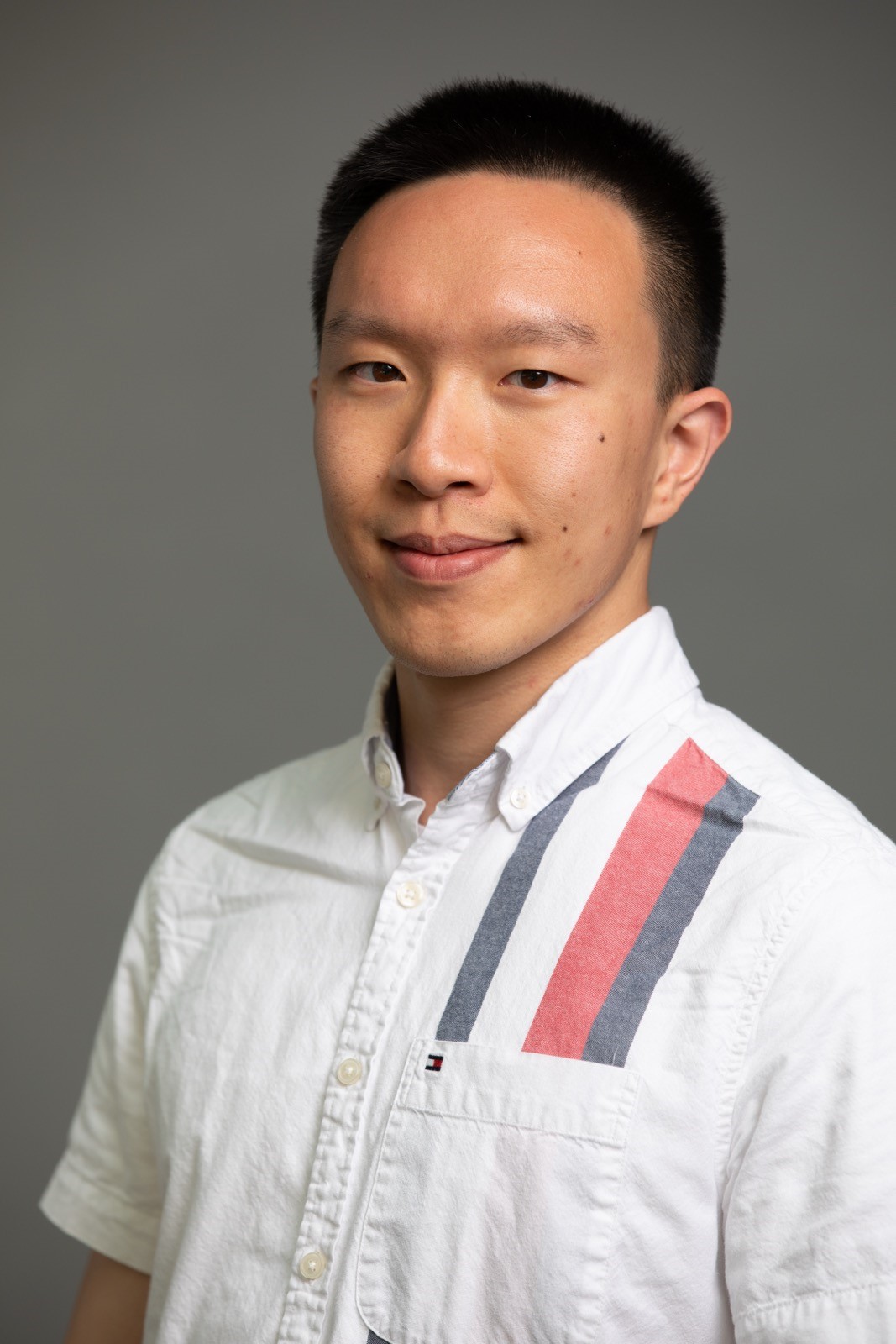
I am an assistant professor in the Computer Science department at Emory University. I received my PhD in Computer Science and Engineering from the University of Michigan in 2024, after receiving both a BSE and MSE in Computer Science also at University of Michigan. My research focuses on developing and applying artificial intelligence methods to enhance decision making in healthcare, with a particular emphasis on reinforcement learning. Inspired by specific real-world use cases, my work identifies technical challenges and proposes novel solutions that are broadly relevant to fundamental research in artificial intelligence. I have published articles in premier journals and conferences across both computer science and clinical venues including NeurIPS, ICML, MLHC, BMJ, Health Affairs, JAMIA, and IDWeek.
Persuasion for Social Good: How to Build and Break AI
Jiaqi Ma
Persuasion is important in numerous situations like healthy habit promotion, and emotional support. As AI gets more involved in our daily life, it becomes critical to study how they can persuade humans and how persuasive they are. In this talk, I will cover (1) how to build such persuasive AI systems that can persuade, negotiate, and cooperate with other humans in the game of Diplomacy. (2) I will also discuss how humans perceive such specialized AI systems. This study validates the necessity of California’s Autobot Law and proposes guidance to regulate such systems. (3) As these systems become more powerful, AI safety problems become more important. So I will describe how to persuade AI models to jailbreak them and study AI safety problems. Finally, I will conclude with my long-term vision to further study persuasion from a multi-angle approach that combines Artificial Intelligence, Human-Computer Interaction, and social sciences.
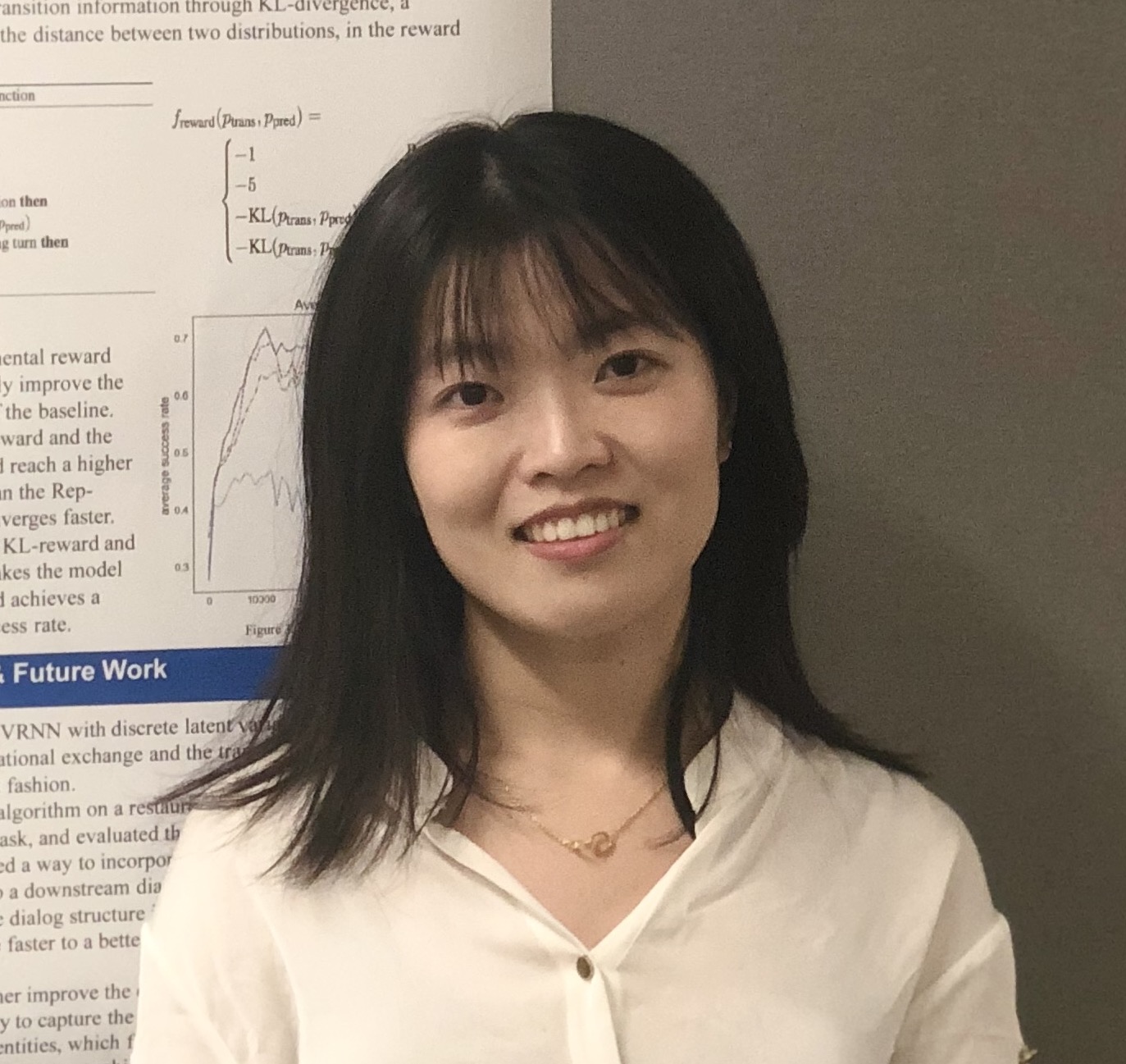
Weiyan Shi is an assistant professor at Northeastern University. Her research interests are persuasive dialogue systems, and AI safety. She is recognized as MIT Technology Review 35 Innovators under 35, Rising Star in Machine Learning and Rising Star in EECS. She has received a Best Social Impact Paper, an Outstanding Paper, and a Best Paper Nomination for her work on persuasive dialogues at ACL 2019 and ACL 2024. She was also a core team member behind a Science publication on the first negotiation AI agent, Cicero, that achieved a human level in the game of Diplomacy. This work has been featured in The New York Times, The Washington Post, MIT Technology Review, Forbes, and other major media outlets.
AI Governance and Lessons Learned as an AI Policy Advisor in the United States Senate
Serena Booth
Prior to assuming my role as an Assistant Professor of Computer Science at Brown University, I served as an AI Policy Advisor through a AAAS Fellowship in the U.S.~Senate. I worked for the Committee on Banking, Housing, and Urban Affairs on the Democrat side. In this unconventional talk, I will detail the lessons I learned about legislating, regulating, and governing AI systems as a policymaker, and how these lessons influence my research agenda as a new PI.

Serena Booth is currently a Senior Law and Society Fellow at U.C. Berkeley’s Simons Institute and an incoming Assistant Professor in Computer Science at Brown University. Serena previously worked in the U.S. Senate as a AAAS AI Policy Fellow, where she analyzed and prescribed AI policy for the Senate Banking, Housing, and Urban Affairs Committee. Serena received her PhD at MIT CSAIL in 2023. In her research, Serena studies how people write specifications for AI systems and how people assess whether AI systems are successful in learning from specifications. Serena is a graduate of Harvard College (2016) and former Associate Product Manager at Google. Her research has been supported by an MIT Presidential Fellowship and by an NSF GRFP, and she is a Rising Star in EECS (2022).
Breaking the Resource Monopoly from Industries: Sustainable and Reliable LLM Serving By Recycling Outdated and Resource-Constrained GPUs
Tianlong Chen
In recent years, Large Language Model (LLM) agents, exemplified by models like ChatGPT, and PaLM, have showcased remarkable prowess in various tasks, owing to their vast number of parameters and emergent in-context learning capabilities. To serve these gigantic models with billions of parameters, it is a trend and becomes a must to explore how to use the existing hardware, especially outdated hardware, to collectively improve environmental sustainability, efficiency, and reliability for LLM serving. A few pioneering examples include Microsoft’s Project Natick, Google’s TPU Pod Optimization, Alibaba’s Cloud Server Repurposing, and Facebook’s Network Hardware Reuse. In this talk, I will traverse my series of contributions with promising new directions, particularly emphasizing modularized LLM architecture (Part 1), in-storage sustainable computing (Part 2), and reliable serving against software and hardware attacks (Part 3).
Dr. Tianlong Chen is an assistant professor in the Department of Computer Science at the University of North Carolina at Chapel Hill. He received his Ph.D. degree from ECE at UT Austin in 2023. His research focuses on efficient and reliable machine learning, multi-modal learning, learning-augmented optimization, and AI4Science. His paper has received the Best Paper Award from LoG’22, and the Best Demo Paper Award at GenAI4Health@NeurIPS’24. He has received the Cisco Faculty Award, AdvML Rising Star, and several PhD fellowships from various companies. His work has been cited more than 10,000 times with an h-index of 45. He has served as Area Chair for diverse top conferences like ICLR’25, EMNLP’24, ICIP, CPAL, etc.
Compression-Aware Computing for Scalable and Sustainable AI
Zhaozhuo Xu
This talk explores the challenge of customizing large-scale AI models, particularly generative AI, on cost-effective devices with limited memory and energy resources. Modern AI models demand substantial computational power, often relying on specialized hardware such as GPUs. To address this, the talk introduces compression-aware computing, a framework enabling AI models to recognize and adapt to their compressed states while preserving performance. Compression-aware computing integrates compression techniques like sparsification, quantization, and low-rank decomposition to enhance the efficiency and accuracy of AI models, broadening these models’ accessibility across diverse devices. Additionally, this talk highlights one rationale of scalable and sustainable AI in advancing Alzheimer’s research by facilitating the analysis of large single-cell transcriptomics datasets for gene-gene interaction discovery.
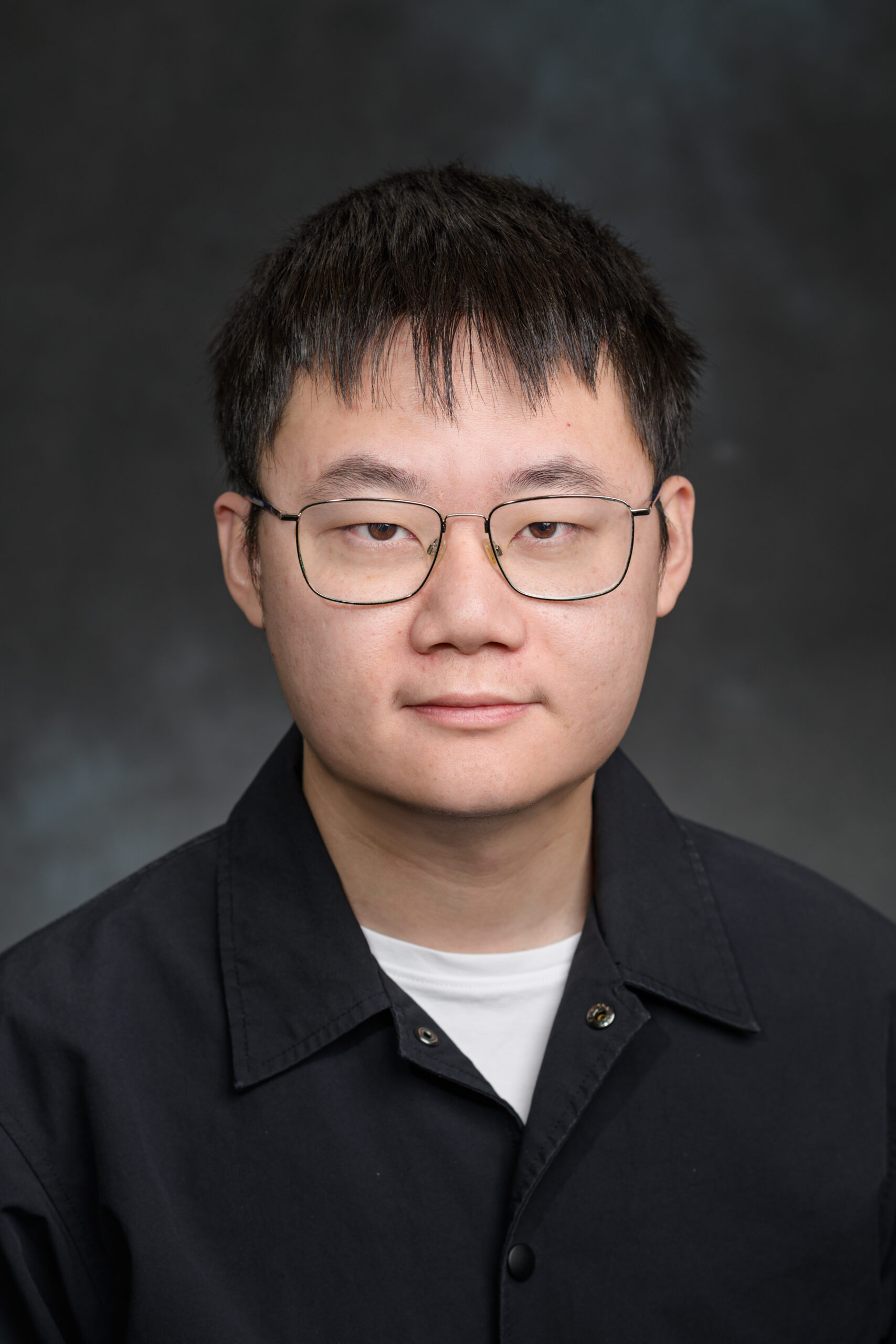
Zhaozhuo Xu is an Assistant Professor in the Department of Computer Science at Stevens Institute of Technology. His research focuses on advancing scalable and sustainable AI, particularly developing randomized algorithms to improve the efficiency of AI systems on commodity hardware for practical applications. Dr. Xu’s work has been featured in leading academic venues, including NeurIPS, ICML, ICLR, KDD, ACL, and EMNLP. His innovations in scalable AI have been integrated into widely used libraries such as Huggingface and adopted by several startups. He also serves as an area chair for major conferences, including ICLR, ICML, ARR, EMNLP Main/Demo Track, and COLING. He received the Ken Kennedy Institute BP Fellowship in 2022.
Learning Language Structures through Grounding
Freda Shi
Syntactic and semantic structures model the language processing behaviors of humans, and can serve as the foundation for machine learning–based natural language processing (NLP) models. However, such structures can be expensive to annotate, rendering the conventional supervised training approach inefficient or even infeasible in a number of scenarios.
In this talk, I will present my work on learning both syntactic and semantic structures of language through various grounding signals that naturally exist in the world. I will start by introducing the task of visually grounded grammar induction and our proposed solution based on visual concreteness estimation. Second, I will describe our work on learning the semantic structures of sentences (i.e., their corresponding programs) by grounding program implementations to their execution outcomes. Towards language-universal NLP, I will describe our work that efficiently transfers models from one language to another without any human annotations in the target language, using cross-lingual word correspondence as grounding signals. I will conclude with a discussion on the future directions of this line of work.

Freda Shi is an Assistant Professor in the David R. Cheriton School of Computer Science at the University of Waterloo and a Faculty Member at the Vector Institute, where she also holds a Canada CIFAR AI Chair. She received her Ph.D. degree in Computer Science from the Toyota Technological Institute at Chicago and was a visiting doctoral student at the Massachusetts Institute of Technology. Her research interests are in computational linguistics and natural language processing. Her work has been recognized by nominations for the Best Paper Award at ACL 2019, 2021, and 2024, a Google Ph.D. Fellowship, and a Finalist Award for the Facebook Fellowship. She is a recipient/co-recipient of an NSERC Discovery Grant and an NSERC Discovery Horizons grant.
Axioms for AI Alignment from Human Feedback
Evi Micha
In the context of reinforcement learning from human feedback (RLHF), the reward function is generally derived from maximum likelihood estimation of a random utility model based on pairwise comparisons made by humans. The problem of learning a reward function is one of preference aggregation that, we argue, largely falls within the scope of social choice theory. From this perspective, we can evaluate different aggregation methods via established axioms, examining whether these methods meet or fail well-known standards. We demonstrate that both the Bradley-Terry-Luce Model and its broad generalizations fail to meet basic axioms. In response, we develop novel rules for learning reward functions with strong axiomatic guarantees. A key innovation from the standpoint of social choice is that our problem has a linear structure, which greatly restricts the space of feasible rules and leads to a new paradigm that we call linear social choice.

Evi Micha is an assistant professor at Computer Science department. She did her postdoc at Harvard University under the supervision of Ariel Procaccia. Before that, she obtained her Ph.D. from the University of Toronto, advised by Nisarg Shah. She was also an affiliate of the Vector Institute for Artificial Intelligence and a fellow of the Schwartz Reisman Institute for Technology and Society. Her research interests lie at the intersection of computer science and economics, and span areas such as algorithmic fairness and computational social choice. One of her recent papers was selected as exemplary in the applied modeling track of ACM Conference on Economics and Computation. Her research has been awarded the 2024 Best Dissertation Award from the Canadia Artificial Intelligence Association and the 2024 IFAAMAS Victor Lesser Distinguished Dissertation Award runner-up.
Scaling up Reinforcement Learning
Aviral Kumar
Reinforcement learning (RL) offers a powerful framework for learning behavioral strategies or policies from data and experience, often surpassing supervised and unsupervised learning approaches in its ability to discover novel and superior behaviors. However, most RL advances in the last decade have largely been made in settings with limited data, small-scale models, and domain-specificity. In this talk, I will present my research on scaling RL to overcome these barriers, unlocking new capabilities and efficiencies.
In the first part of the talk, I will talk about offline RL, a paradigm that aims to address the data problem by learning policies from previously-collected experience, without any additional environment interaction. I will introduce an algorithm (conservative Q-learning) and present its favorable scaling results with data quality and model size. I will then discuss how to combine offline RL with the conventional RL paradigm of learning from active interaction (i.e., online RL), resulting in “hybrid” algorithms that enjoy the best of learning from diverse historical data as well as interaction.
In the second part, I will talk about how techniques from offline RL, when scaled up appropriately, can be used to improve reasoning and agentic capabilities of generalist foundation models such as LLMs, often entirely with autonomously-collected suboptimal data. Our methods often lead to drastic improvements: about 6-8x in compute efficiency, 8x in data efficiency, and are the first ones to unlock new capabilities with the use of more inference-time computation.
I will conclude my talk with a brief discussion of some future directions at the intersection of RL and scaling, that I believe are exciting, challenging, and impactful.
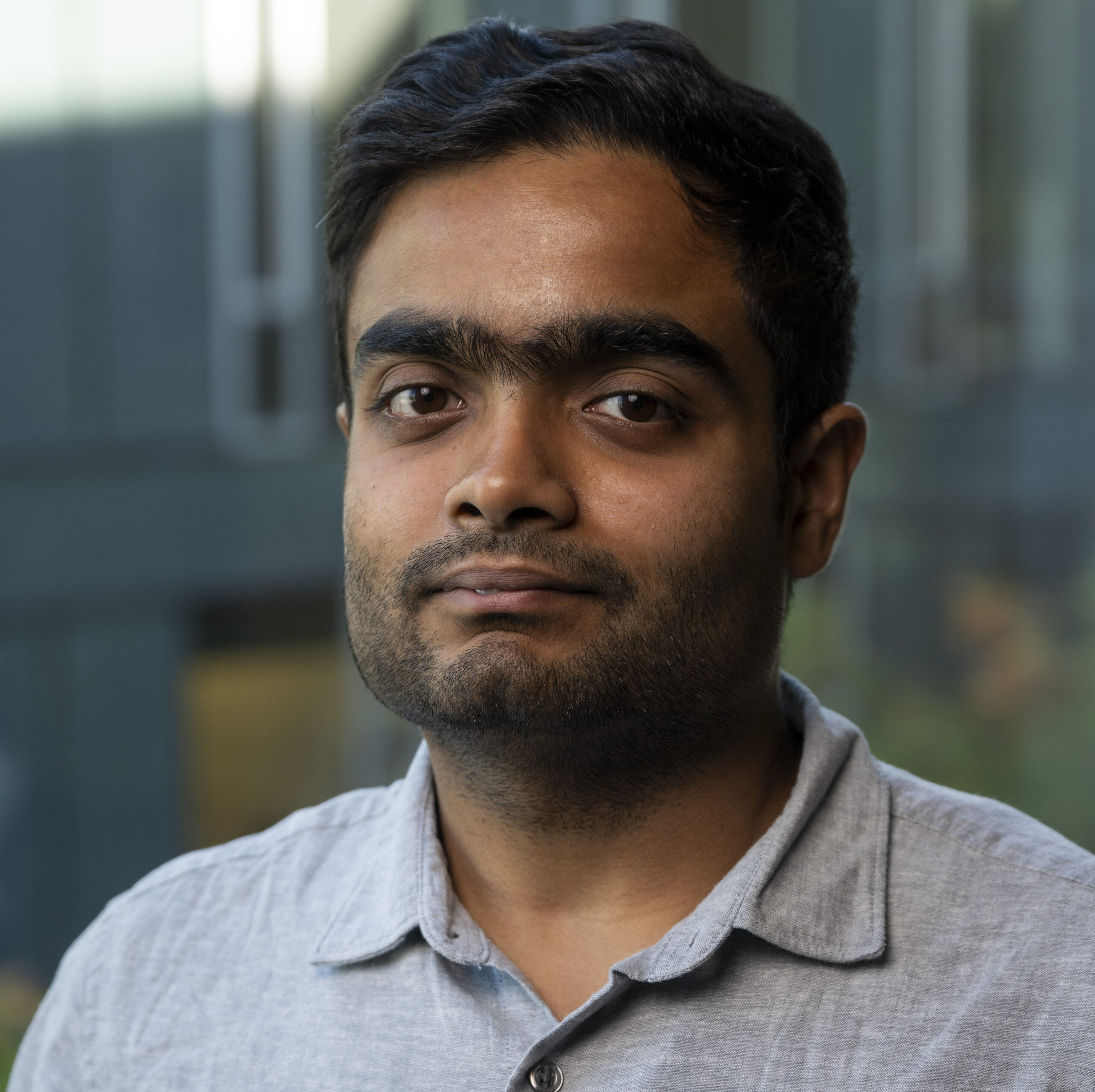
Aviral Kumar is an Assistant Professor of CS and ML at CMU, where he started in September 2024. He finished his PhD at UC Berkeley in 2023. His work focuses on making machines and AI systems capable of making intelligent decisions, with an emphasis on developing reinforcement learning techniques that work reliably and efficiently at scale. His most notable work is in the field of offline reinforcement learning. Some of his recent work studies RL at scale with foundation models. He has been named one of 5 Samsung AI researchers of the Year 2024 globally, one of 20 AI2050 Early Career Fellows by Schmidt Sciences in 2024 globally, a semi-finalist for MIT Technology Review 35 Innovators under 35 in 2023 (top 100), and is a recipient of the CV & Daulat Ramamoorthy Distinguished Research Award, 2022 at UC Berkeley given to one PhD student for outstanding contributions to a new area of research in CS, and Facebook and Apple PhD fellowships.
Mitigating Bias in Machine Learning: A Comprehensive Review and Novel Approaches
Mahdi Khalili
Machine learning algorithms are increasingly used in our daily lives, yet often exhibit discrimination against protected groups. In this talk, I discuss the growing concern of bias in ML and overview existing approaches to address fairness issues. Then, I present three novel approaches developed by my research group. The first leverages generative AI to eliminate biases in training datasets, the second tackles non-convex problems arise in fair learning, and the third introduces a matrix decomposition-based post-processing approach to identify and eliminate unfair model components while preserving accuracy.

Mahdi Khalili is an Assistant Professor in the Department of Computer Science and Engineering at The Ohio State University. Prior to joining OSU, he was a postdoctoral researcher at UC Berkeley and a research scientist at Yahoo Research. He received a Ph.D. in EECS and an MSc in Applied Math from the University of Michigan, Ann Arbor.
Dr. Khalili’s lab focuses on Trustworthy Machine Learning to develop algorithms with theoretical guarantees to improve the fairness, privacy, robustness, and interpretability of AI models. His goal is to build AI systems that represent diverse populations and positively impact society. Supported by the NSF and the Translational Data Analytics Institute, his work has appeared in top journals and ML conferences, with his research on interpretability selected for an oral presentation at AAAI. He received the Rackham Fellowship and was a finalist for the Eleanor Towner Dissertation Award in 2018.
Beyond Accuracy: Building Reliable, Cost-Effective Sparse Models
Dongkuan Xu
In an era where AI models are scaling to unprecedented sizes, accuracy alone is no longer enough. This talk dives into the challenges and innovations of sparse training as a solution to the soaring computational demands of deep neural networks. Sparse models offer a way to drastically cut down memory, energy, and computational costs, but these benefits often come at the expense of reliability—especially in real-world, safety-critical applications. We explore the latest advances in sparse training techniques designed to enhance model reliability without sacrificing efficiency. By examining innovative methods such as structured and unstructured sparse masking, weight averaging, and unknown-aware loss functions, we demonstrate how sparse models can achieve both high performance and calibrated confidence. From model pruning to dynamic mask adjustments, this talk introduces a comprehensive framework for optimizing sparse models, including theoretical insights and experimental results across various datasets. Join us as we push beyond the accuracy paradigm and redefine what it means to build scalable, dependable AI in resource-constrained environments.
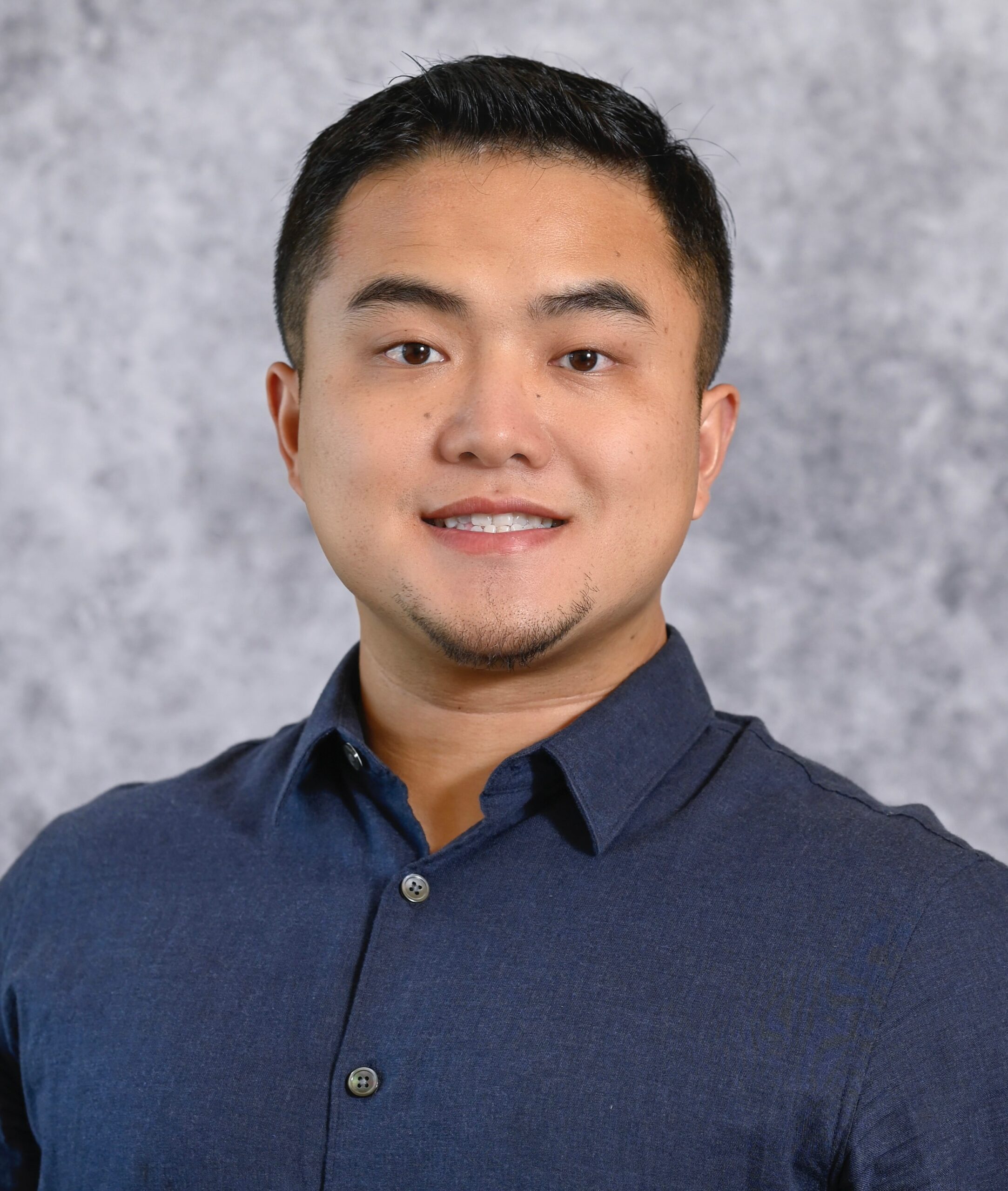
Dongkuan (DK) Xu is an Assistant Professor in the CS Department at NC State and leads the NCSU Generative Intelligent Computing Lab. His research is fundamentally grounded in
advancing Artificial General Intelligence, particularly automated planning, reliable reasoning, and efficient computing. He has been honored with the Microsoft Accelerating Foundation Models Research Award 2024, the NCSU Carla Savage Award 2024, and the Best Paper Award of ICCCN.
DK’s research has been published repeatedly in top conferences and journals in AI, NLP, CV, Hardware, and other fields. He serves as the Column Editor for the ACM SIGAI Newsletter
and chaired the Workshop on Deep Learning-Hardware Co-Design for Generative AI Acceleration at DAC 2024, co-chaired the Workshop on Dataset Distillation for Computer Vision at CVPR 2024, the Workshop on Deep Learning-Hardware Co-Design for AI Acceleration at AAAI 2023, and the Resource Efficient Learning for Knowledge Discovery Workshops at KDD 2023 and KDD 2024. In addition, DK has served as the panelist, area chair, (senior) PC member, and regular reviewer for NSF programs and over forty major conferences and journals. DK has extensive research experience in the industry. He has been collaborating with Google DeepMind, Microsoft Research, Moffett AI, and NEC Labs America, and holds multiple US patents. DK’s long-term research goal is to liberate AI productivity and democratize its application to serve a broader range of populations and real-world applications, equally, sustainably, and responsibly. More information can be found at https://dongkuanx27.github.io/
Realizing AI for Impact: Towards Participatory Human-AI Collaboration for Water Conservation and Reproductive Health
Elizabeth Bondi-Kelly
AI has immense potential for positive social impact, including in domains ranging from conservation to health. However, it can be challenging to account for human collaborations and real-world uncertainties when deploying such systems, which can lead to critical errors. Therefore, my research focuses on developing new methods in multi-agent systems and machine learning, including methods for participatory design of AI, human-AI collaboration, and uncertainty quantification, to develop safe, impactful AI systems, particularly in the domains of water conservation and reproductive health.

Elizabeth Bondi-Kelly is an Assistant Professor of Electrical Engineering and Computer Science at the University of Michigan. She has a PhD in Computer Science at Harvard University, where she was advised by Prof. Milind Tambe, and she was formerly a Postdoctoral Fellow at MIT through the CSAIL METEOR Fellowship. Her research interests are focused on artificial intelligence for social impact, particularly spanning the fields of multi-agent systems and machine learning. Her work, which has been published in venues such as AAAI, AAMAS, AIES, and IJCAI, has applications in conservation and public health, and has been deployed to support conservation efforts. She has been recognized with a Google Academic Research Award in 2024, MIT EECS Rising Stars in 2021, the Best Paper Runner Up at AAAI 2021, Best Application Demo Award at AAMAS 2019, Best Paper Award at SPIE DCS 2016, and an Honorable Mention for the NSF Graduate Research Fellowship Program in 2017. She also founded and currently leads Try AI, a 501(c)(3) nonprofit committed to increasing diversity, equity, inclusion, and belonging in the field of AI through community-building educational programs, largely focused on AI for social impact.
Towards Trustworthy Machine Learning under Distribution Shifts
Jun Wu
Transfer learning refers as to the transfer of knowledge or information from a source domain to a relevant target domain. There are two key challenges: distribution shifts and trustworthiness concerns. To address these challenges, my research aims to understand transfer learning from the perspective of knowledge transferability (e.g., IID and non-IID learning tasks) and trustworthiness (e.g., adversarial robustness, data privacy, and performance fairness).
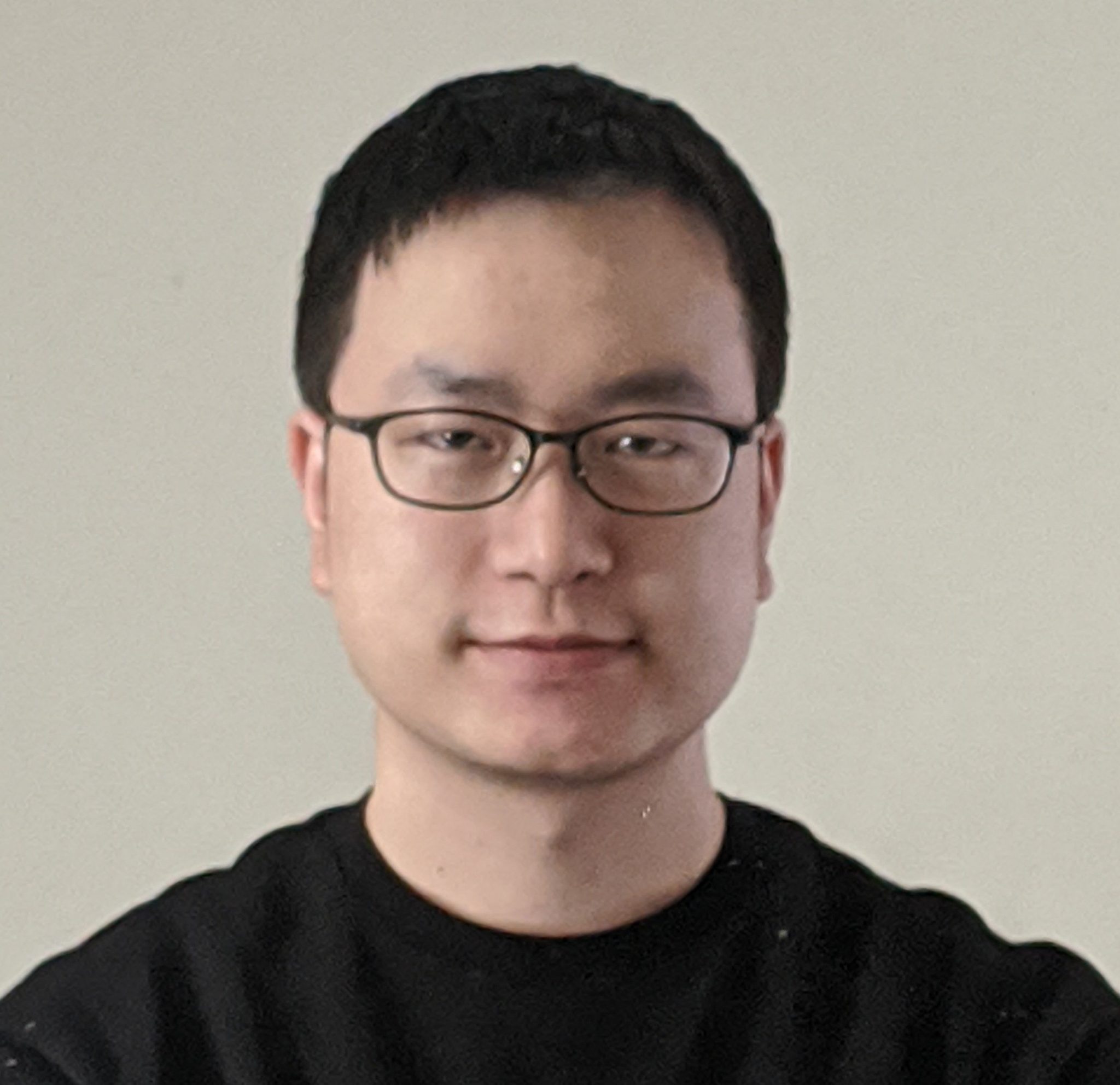
Jun Wu is an Assistant Professor in the Department of Computer Science and Engineering at the Michigan State University (MSU). Before joining MSU, He received his Ph.D. degree in Computer Science at the University of Illinois Urbana-Champaign. Jun has a broad research interest in trustworthy machine learning, transfer learning/domain adaptation, and graph learning, with applications in agriculture, bioinformatics, e-commerce, and legal analytics.
Leveraging Human Input to Enable Robust, Interactive, and Aligned AI Systems
Daniel Brown
Ensuring that AI systems do what we, as humans, actually want them to do, is one of the biggest open research challenges in AI alignment and safety. My research seeks to directly address this challenge by enabling AI systems to interact with humans to learn aligned and robust behaviors. The way robots and other AI systems behave is often the result of optimizing a reward function. However, manually designing good reward functions is highly challenging and error prone, even for domain experts. Although reward functions for complex tasks are difficult to manually specify, human feedback in the form of demonstrations or preferences is often much easier to obtain. However, human data is often difficult to interpret due to ambiguity and noise. Thus, it is critical that AI systems take into account uncertainty over the human’s true intent. My talk will give an overview of my lab’s progress along the following fundamental research areas: (1) efficiently maintaining uncertainty over human intent, (2) directly optimizing behavior to be robust to uncertainty over human intent, and (3) actively querying for additional human input to reduce uncertainty over human intent.

Daniel Brown is an assistant professor in the Kahlert School of Computing and the Robotics Center at the University of Utah. He received an NIH Trailblazer award in 2024, was named a Robotics Science and Systems Pioneer in 2021, and has won best paper finalist awards at the International Symposium on Medical Robotics and the International Conference on Human-Robot Interaction. Daniel’s research focuses on human-AI alignment, human-robot interaction, and robot learning. His goal is to develop robots and other AI systems that can safely and efficiently interact with, learn from, teach, and empower human users. His research spans reward and preference learning, human-in-the-loop machine learning, and AI safety, with applications in assistive and medical robotics, personal AI assistants, and autonomous driving. He completed his postdoc at UC Berkeley in 2023 and he received his Ph.D. in Computer Science from UT Austin in 2020.
Harnessing Robust Statistics for Trustworthy AI
Xiaorui Liu
Machine learning techniques are notably vulnerable to natural and adversarial perturbations. These vulnerabilities can lead to potential catastrophic failures with significant economic, ethical, and societal risks. In this talk, I will present my research on harnessing robust statistics to build robust and trustworthy AI systems. Specifically, I will highlight my research breakthroughs in graph learning (GNNs), large language models (LLMs), deep equilibrium models (DEQs), and deep representation learning. These breakthroughs stem from a unified and principled robust statistics framework that incorporates robustness as the core inductive bias in deep learning architecture. This innovative approach has enabled significant improvements in intrinsic robustness and generalization even in complex and challenging environments, which demonstrates the transformative potential of harnessing robust statistics to enhance the robustness and trustworthiness of AI systems.
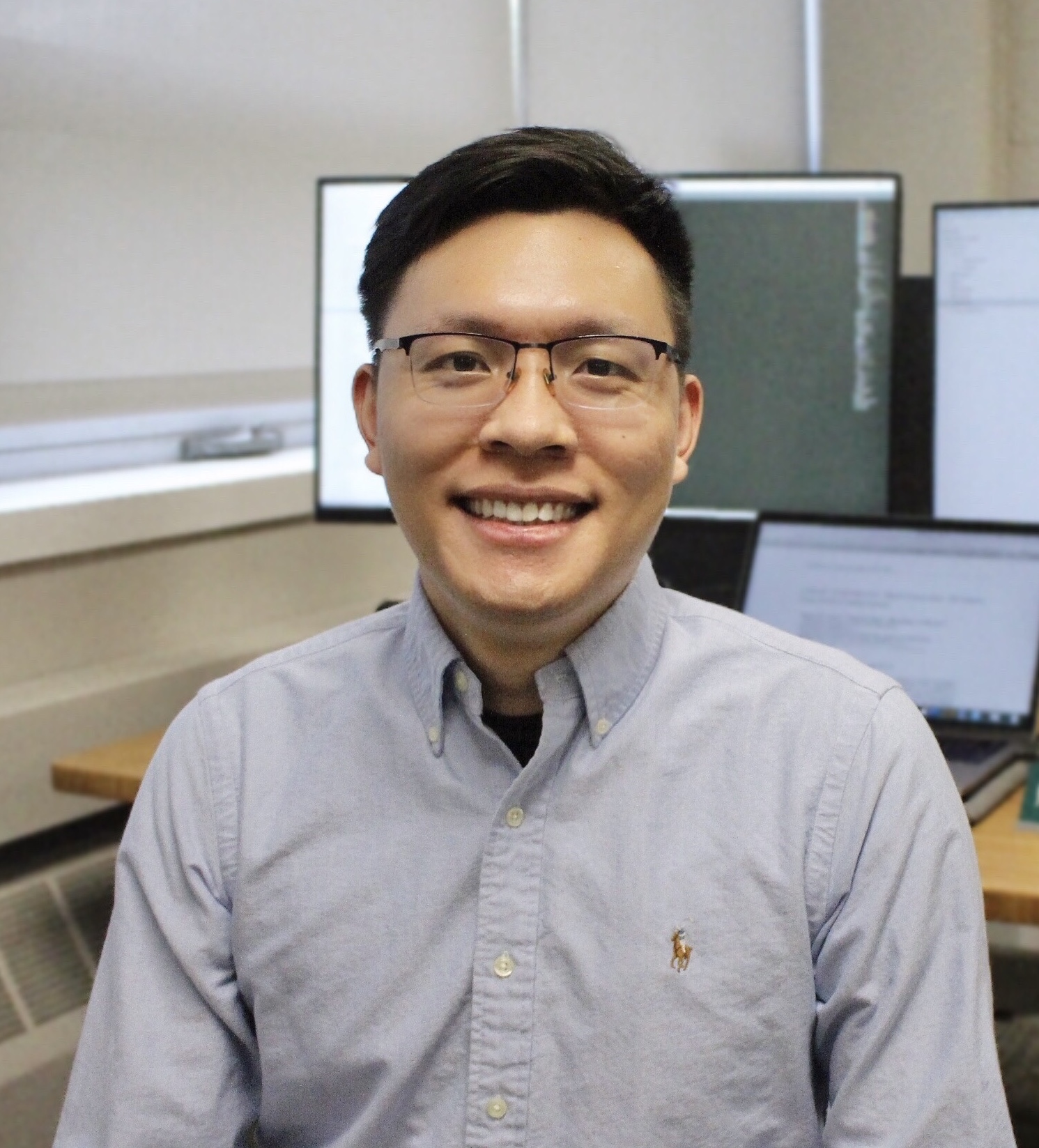
Dr. Xiaorui Liu has been an Assistant Professor of Computer Science at North Carolina State University since Fall 2022. His research interests include large-scale machine learning, trustworthy AI, deep learning on graphs/language/vision, and generative AI. He was awarded the National AI Research Resource Pilot Award (2024), ACM SIGKDD Outstanding Dissertation Award (Runner-up, 2023), and Amazon Research Awards (2022 and 2023). Dr. Liu has published innovative works in top-tier conferences such as NeurIPS, ICML, ICLR, KDD, AISTATS, WWW, and SIGIR. He also organized and presented over ten tutorials related to his research in large-scale GNNs, distributed machine learning, graph representation learning, and trustworthy AI.
Breaking the Resource Monopoly from Industries: Sustainable and Reliable LLM Serving By Recycling Outdated and Resource-Constrained GPUs
Tianlong Chen
In recent years, Large Language Model (LLM) agents, exemplified by models like ChatGPT, and PaLM, have showcased remarkable prowess in various tasks, owing to their vast number of parameters and emergent in-context learning capabilities. To serve these gigantic models with billions of parameters, it is a trend and becomes a must to explore how to use the existing hardware, especially outdated hardware, to collectively improve environmental sustainability, efficiency, and reliability for LLM serving. A few pioneering examples include Microsoft’s Project Natick, Google’s TPU Pod Optimization, Alibaba’s Cloud Server Repurposing, and Facebook’s Network Hardware Reuse. In this talk, I will traverse my series of contributions with promising new directions, particularly emphasizing modularized LLM architecture (Part 1), in-storage sustainable computing (Part 2), and reliable serving against software and hardware attacks (Part 3).

Dr. Tianlong Chen is an assistant professor in the Department of Computer Science at the University of North Carolina at Chapel Hill. He received his Ph.D. degree from ECE at UT Austin in 2023. His research focuses on efficient and reliable machine learning, multi-modal learning, learning-augmented optimization, and AI4Science. His paper has received the Best Paper Award from LoG’22, and the Best Demo Paper Award at GenAI4Health@NeurIPS’24. He has received the Cisco Faculty Award, AdvML Rising Star, and several PhD fellowships from various companies. His work has been cited more than 10,000 times with an h-index of 45. He has served as Area Chair for diverse top conferences like ICLR’25, EMNLP’24, ICIP, CPAL, etc.
For More Information
Inquiries concerning submissions and suggestions for the new faculty highlight program may be directed to the program co-chairs at aaai25fhchairs@aaai.org. All other inquiries should be directed to AAAI at aaai25@aaai.org.
New Faculty Highlight Co-Chairs
Bistra Dilkina, University of Southern California, USA
Jana Doppa, Washington State University, USA

